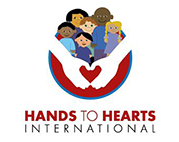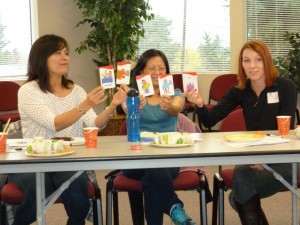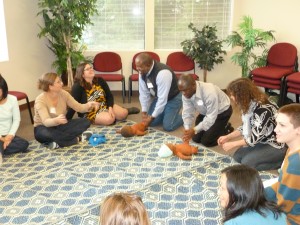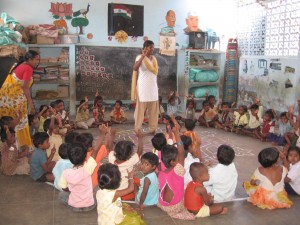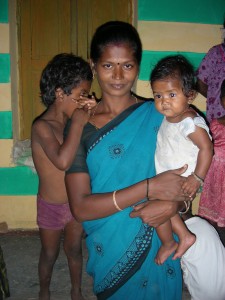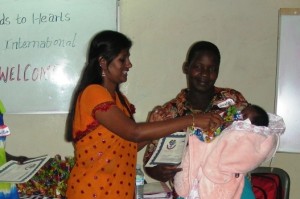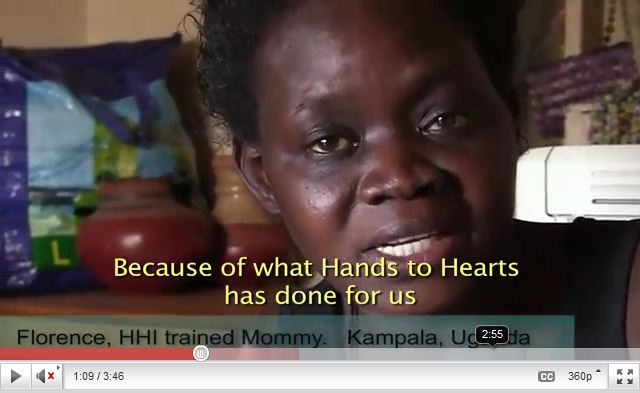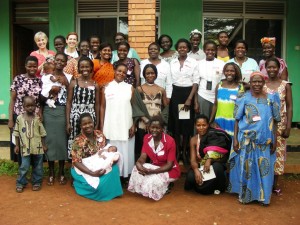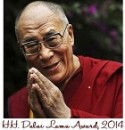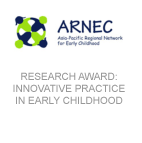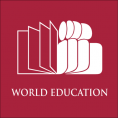We’ve trained mommies, daddies, orphanage and day care staff, health care workers, prison inmates, extended family members and all sorts of other caregivers. We’ve trained them in India, Russia, Uganda and Swaziland but never in the United States!
We are excited to report that last week HHI led its first training in the US, in our hometown of Portland, OR. We trained 15 staff from the Immigrant and Refugee Community Organization’s (IRCO) parenting department as a pilot project for what we hope will be a much larger project in 2013. By partnering with IRCO we’ll be able to further our mission to serve moms, dads and babies, by supporting the immigrant and refugee families living in Portland and the surrounding area. Each year, IRCO serves nearly 40,000 people and the potential reach of our partnership is huge.
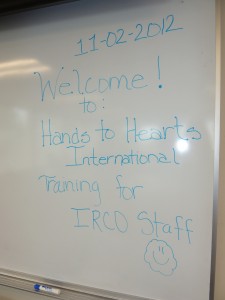
The training included a sampling of information and activities from HHI’s entire curriculum. We played games, made up stories, searched for everyday items that could be used to promote development, and played charades.
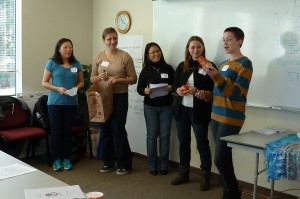
IRCO staff participants reported that the most important thing they learned during HHI’s training was, “Parents/caregivers are the most important people in a child’s life and providing education, support and guidance to parents can go a long way in building healthy parent/child interactions.” As well as, how to “make parenting fun and meaningful.”
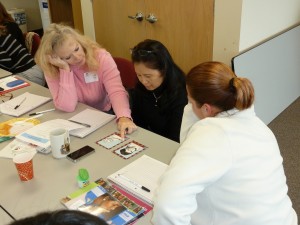
When asked how they would change their work with the clients they serve, answers included: “Focus more on empowering parents to be connected to their children, to build that essential attachment that will impact the life of the child and parents in a positive way.” And, “Using what is available with parents both what they have physically and positive parenting traits they possess.” IRCO staff were in full alignment with HHI’s core values.
IRCO staff were from a wide variety of countries and cultures, including: Romania, Russia, Mexico, US, Somalia, Laos, Vietnam and Thailand. And while everyone, from every culture, around the globe, loves their babies – no baby ever comes with an instruction manual!
Our thanks to Danita Huynh for all of her hard work and enthusiasm in putting this project together! Our thanks also to Sokhom Tauch and Jeff McDonald, IRCO’s leadership; to Valerie Palmer, the Chair of IRCO’s Board of Directors; and to David Pyle, Chair of HHI’s Board of Directors and Sarah Newhall, founding member of IRCO’s Board of Directors. Each of you, joined together in a mutual commitment to service and to making our world a better place – you are succeeding, THANK YOU!
